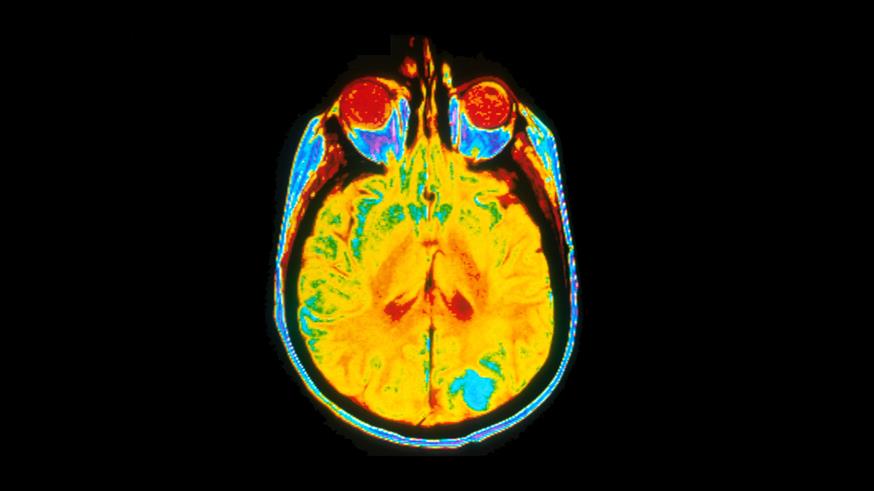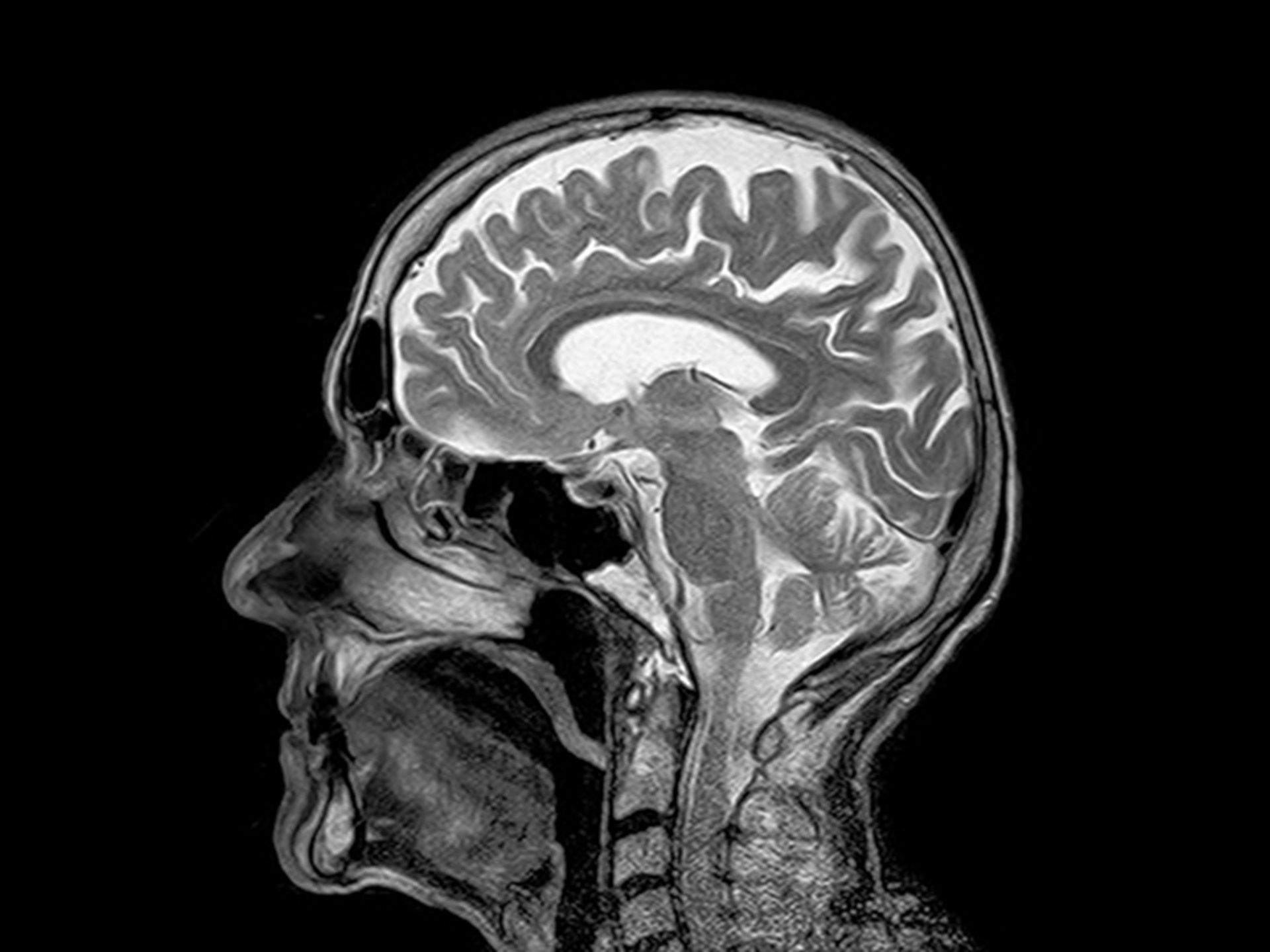
Image: A single image of a human brain using a magnetic resonance imaging (MRI) machine. Source: Wikimedia, by Dr. Leon Kaufman. (Modified to change image dimensions and remove text overlay.)
Scientists at The Institute of Cancer Research, London in collaboration with a team at the Structural Genomics Consortium in Oxford (SGC) have created a new series of compound that could form the basis for drugs that target the devastating childhood brain cancer diffuse intrinsic pontine glioma, or DIPG.
The compounds block a protein called ALK2, which earlier research at the ICR showed plays a crucial role in the development of some cases of DIPG, which is currently untreatable.
Inhibitors from this series of compounds bind to ALK2 in two different ways – a flexibility that could help drugs to effectively target the mutation and treat DIPG.
Details of the inhibitor are now freely available online for researchers.
Current outcomes for DIPG patients poor
Although rare, diffuse intrinsic pontine glioma (DIPG) is the second most common brain cancer diagnosed in children.
DIPG tumours form at the base of the brain where essential body functions like breathing and heartbeat are controlled. Because of their location they cannot be surgically removed, and they are resistant to treatments like chemotherapy.
Outcomes for patients with DIPG are poor and most children diagnosed with the disease die within a year.
ICR scientists led by Professor Chris Jones carried out pioneering research which linked the protein ALK2 – which also plays a role in a disease called Stone Man Syndrome – to DIPG.
The ICR is an internationally leading research centre in the study of childhood cancers and cancers in children, teenagers and young adults.
Compounds now available for development
The new study, published in the Journal of Medicinal Chemistry, describes the structure of new compounds which inhibit the protein.
ICR researchers used drug discovery techniques to discover this series of ALK inhibitors. Using crystallography, the team found that somewhat unusually, some of the compounds showed a flipped, alternative binding mode. Despite changing their orientation where they bind with ALK2, they still block the protein's activity.
In cells taken from a patient with DIPG, they saw that one of the inhibitors reduced the activity of cellular markers of ALK2.
The compounds are now available to researchers to develop further through M4K pharma, an open access consortium of researchers dedicated to finding new treatments for rare diseases like DIPG.
'We discovered compounds that block ALK2'
The study was funded by Cancer Research UK, Children with Cancer UK, Abbie's Army and the DIPG collaborative, with support from the NIHR Biomedical Research Centre at The Royal Marsden and the ICR.
M4K Pharma (Meds for Kids) is an international collaboration supported by the Ontario Institute for Cancer Research and the Structural Genomics Consortium at The University of Oxford.
Lead author, Dr Swen Hoelder, Team Leader in Medicinal Chemistry at the ICR, said: "Our research follows on from important work at the ICR which identified the protein ALK2 as a potential target for new treatments of the brain cancer DIPG, for which there are currently no effective drugs.
"We discovered a series of inhibitors compound that block ALK2 through two different binding modes. Both modes can potently bind and inhibit ALK2.
"These compounds represent attractive starting points to develop selective ALK2 inhibitors for patients with DIPG, and are now freely available in the public domain to be pursued as starting points to discover more advanced drug candidates."
